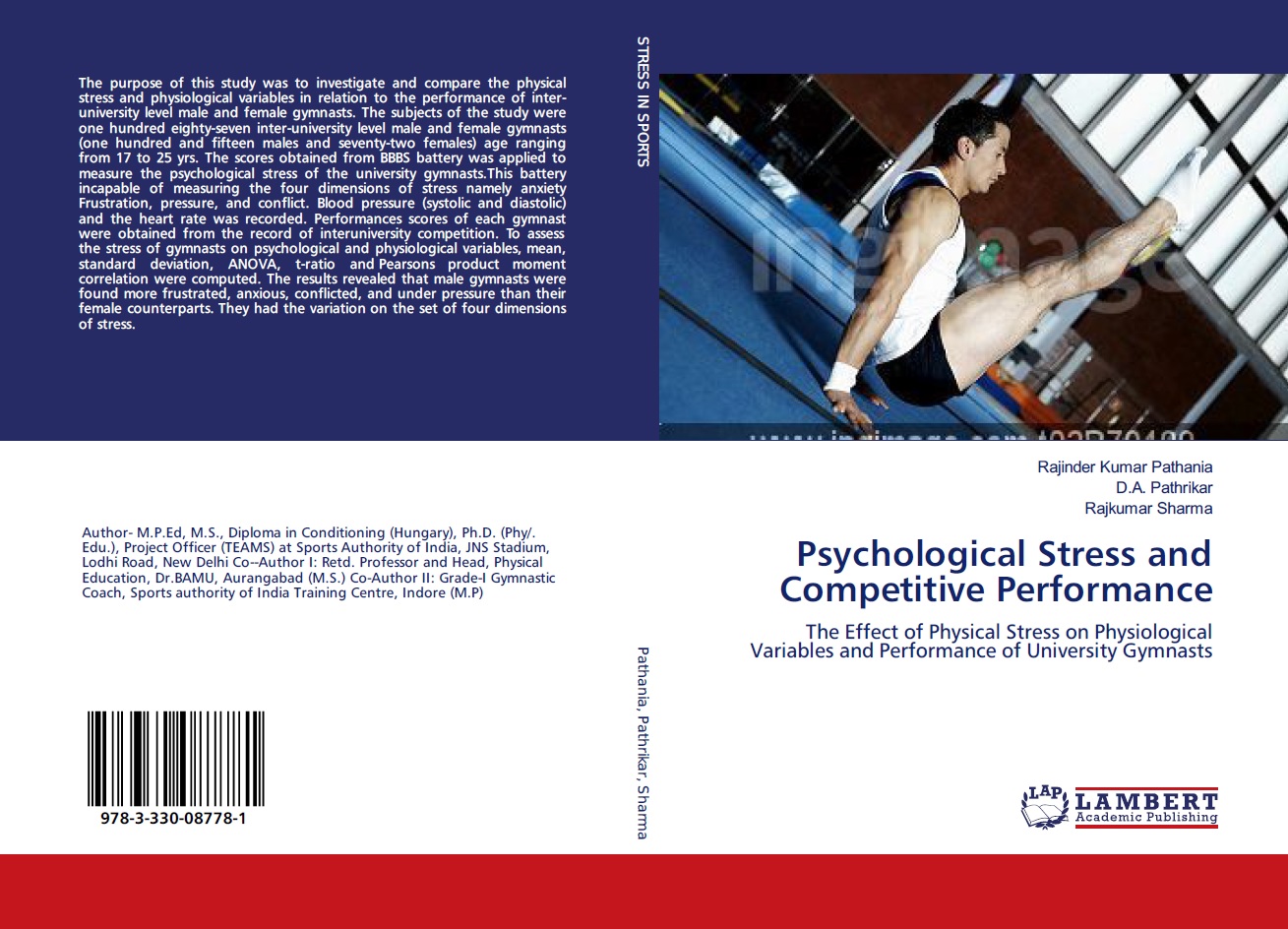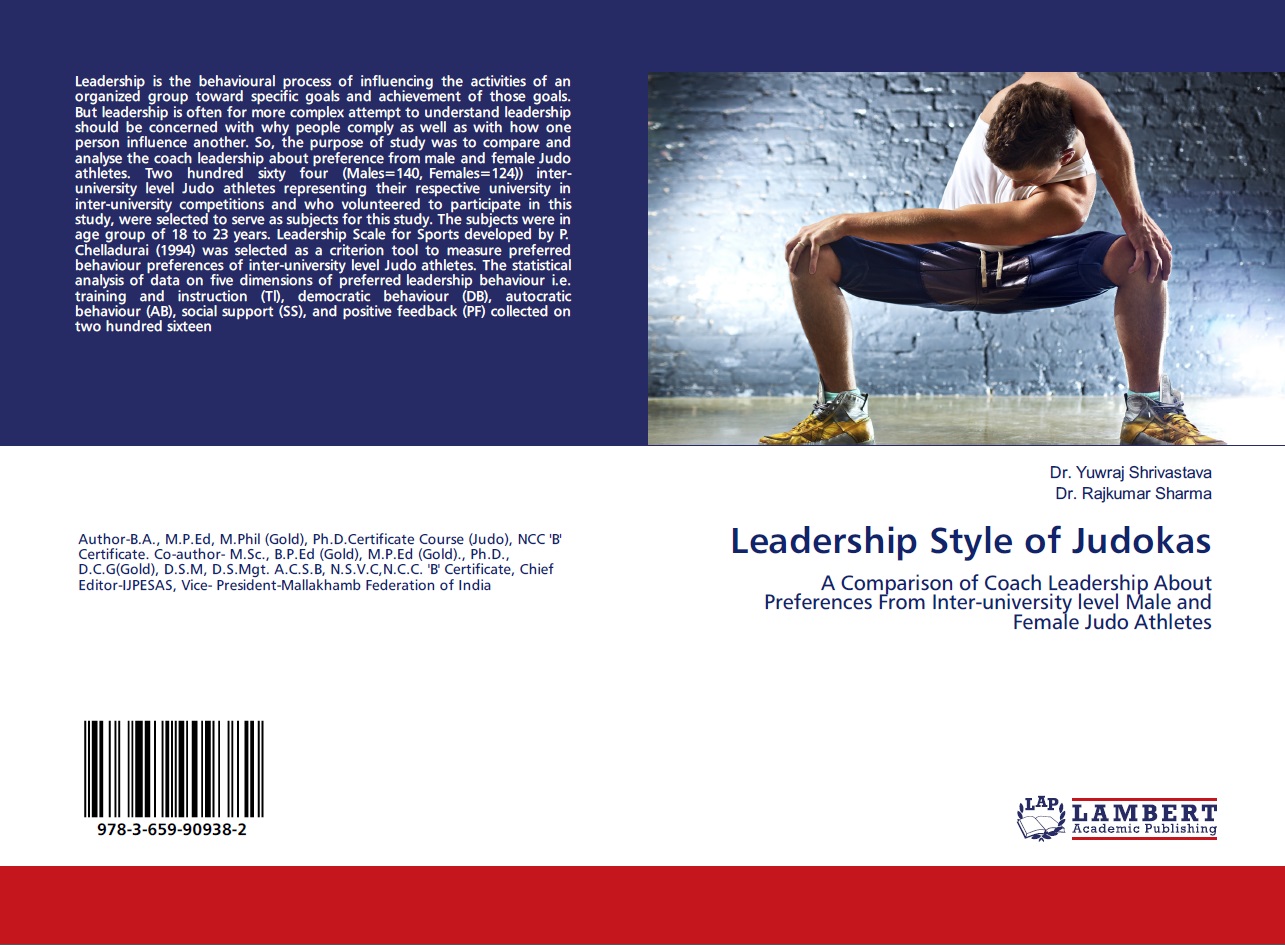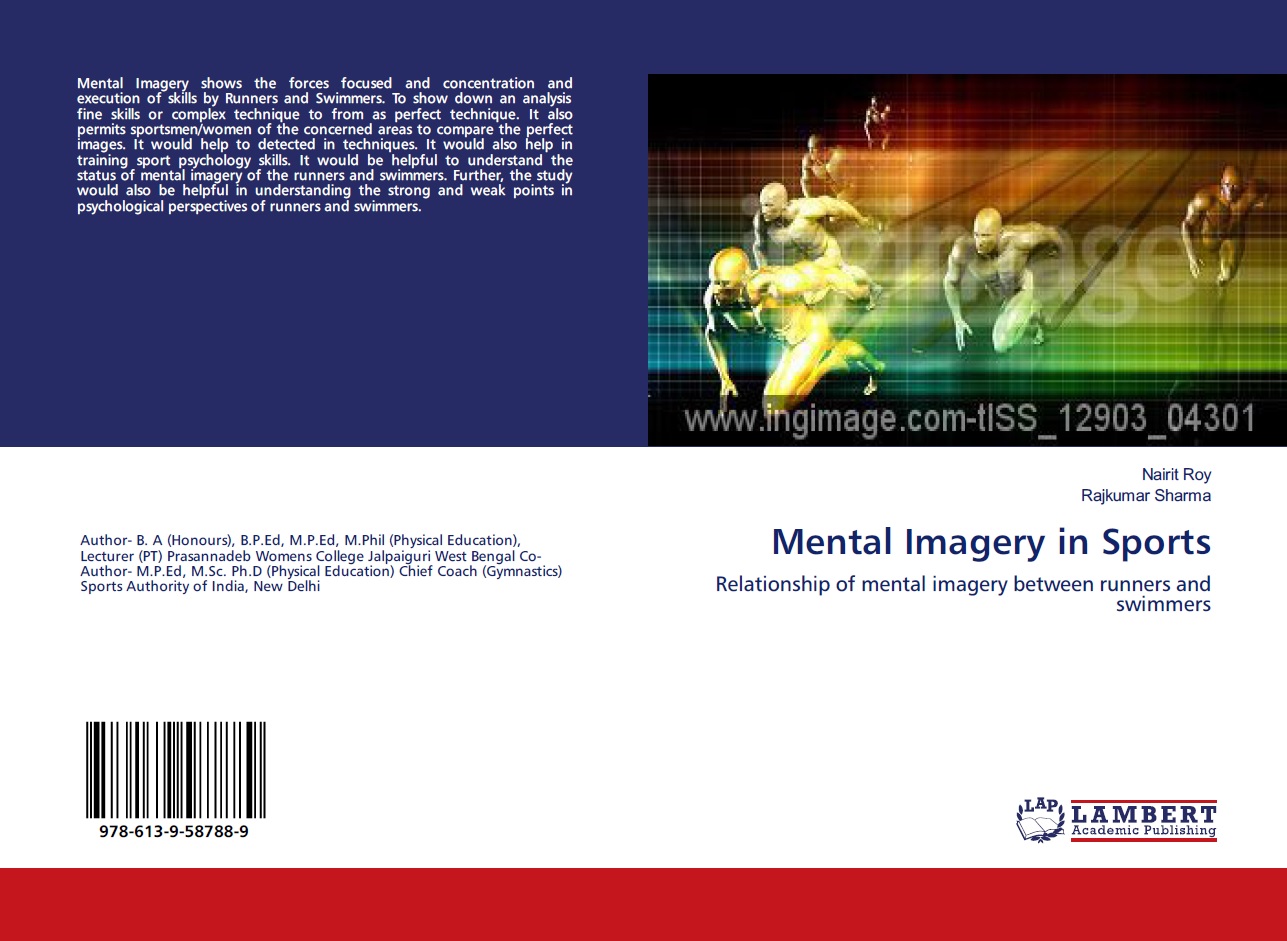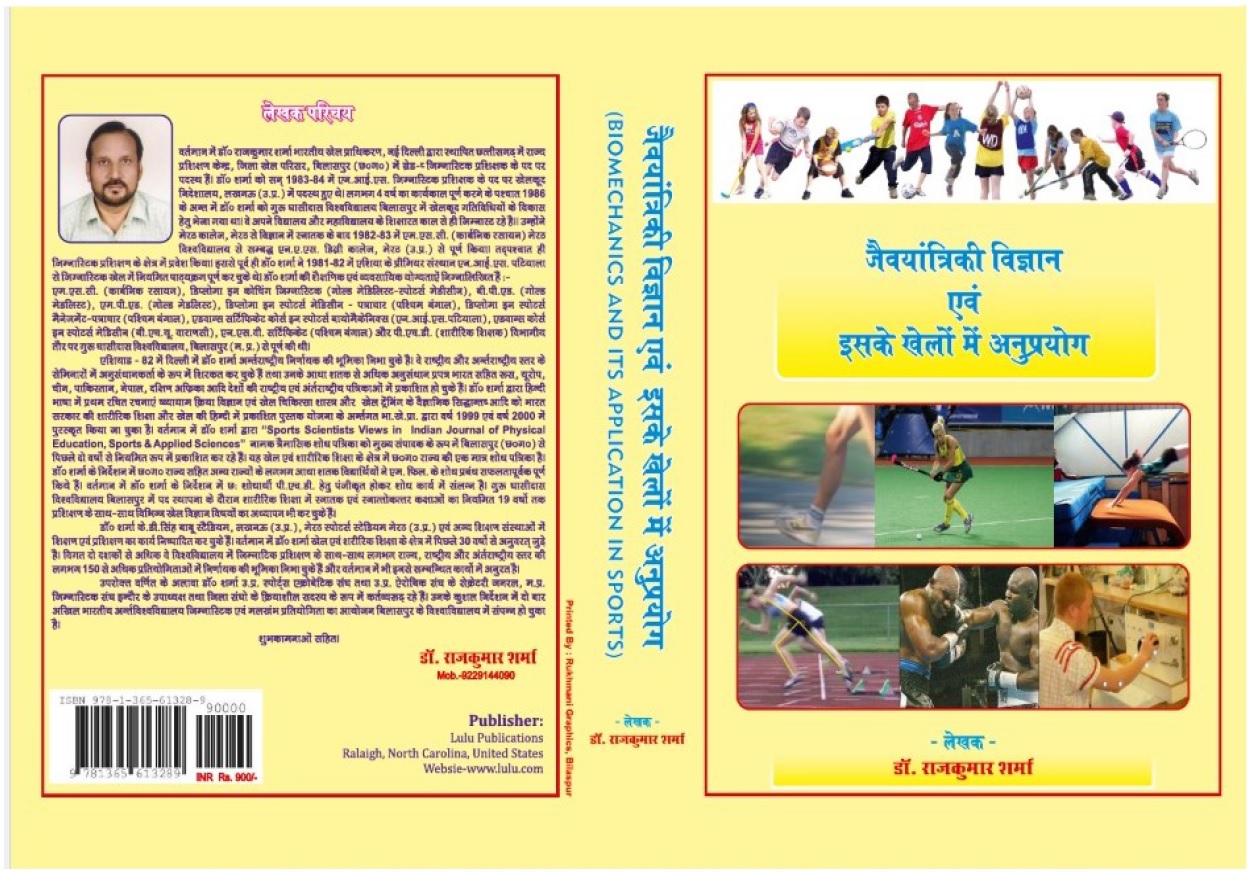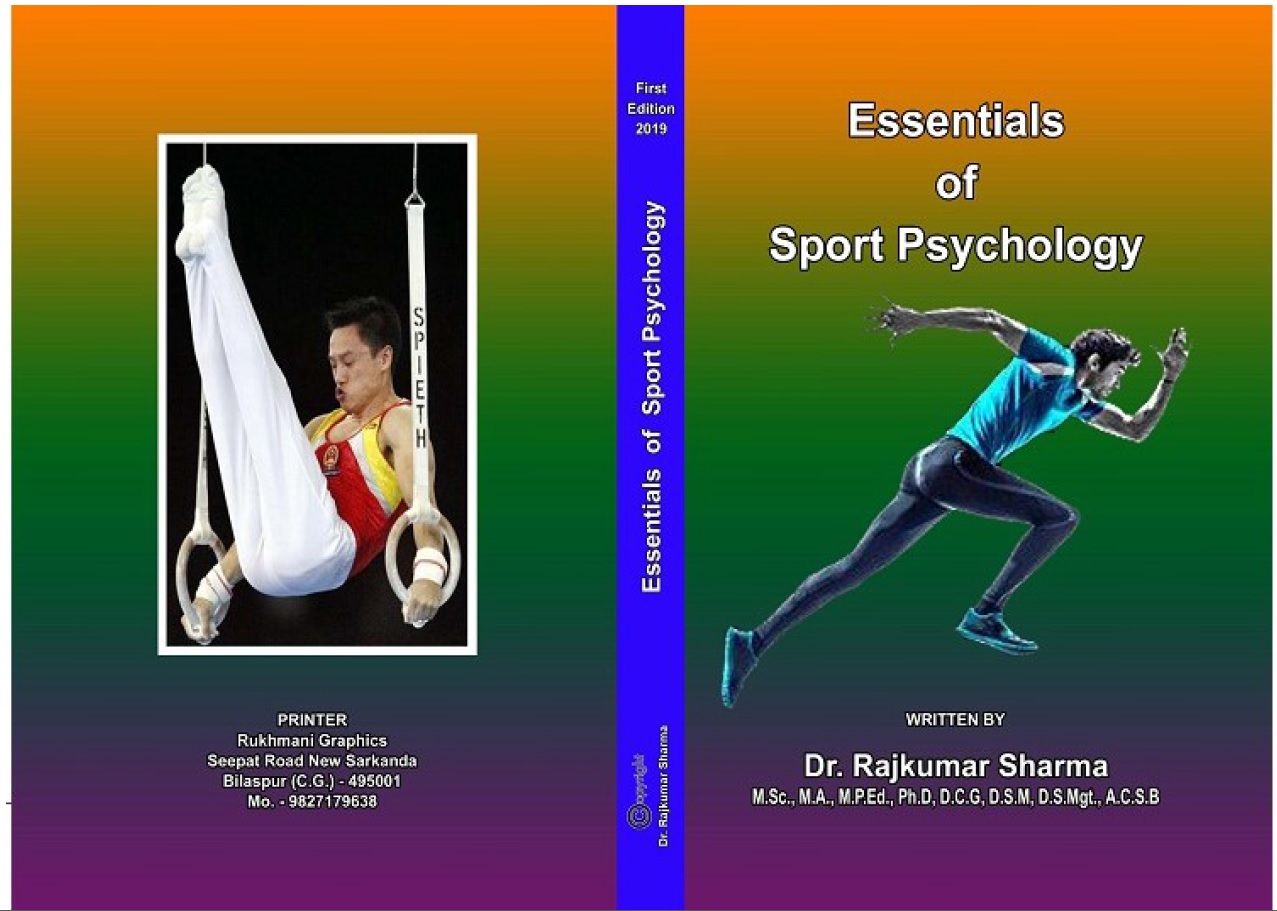| S.No. | Total View Count | Title of Manuscript | Page No | Download/ PDF |
|---|---|---|---|---|
| 1 | LEISURE ACTIVITY AND LIFE SATISFACTION AMONG COLLEGE TEACHERS Author: Dr .Shalini Yadav1 | 01-07 |  15 15 |
Article info
doi no.: 05-2016-44975451,
DOI Link :: https://doi-ds.org/doilink/08.2021-77815186/IJPESAS/05.2016-44975451/V11/I3/A1
AFFILIATIONS:
- Sports Officer, Government College, Majholi, Jabalpur (M.P) Email: yshalini69b@yahoo.com
In order to assess the relationship between leisure activity and life satisfaction among one hundred and seventy ( 85 male & 85 female) teachers from different colleges of Rani Durgawati University, Jabalpur, Madhya Pradesh ,India. The age of teachers ranged between 23 to 63 years. A questionnaire consisting of socio-demographic variables, degree of life satisfaction, health status and frequency of participation in different leisure activities was administered on all the subjects. Zero order correlations between degree of life satisfaction and leisure activity participation of male teachers indicated that activities like “perform volunteer work”; “attend cultural events”; “holiday trips”; and “gardening” were significantly correlated. In case of female teachers “perform volunteer work”; “engage in artistic and musical activities”; “perform handicraft and home repairs”; “participate in sports” and “attend sports events” were significantly correlated with life satisfaction. Partial correlations (controlling the age & medical condition) no change in activities was observed for male teachers. In female participants “attend cinema”; and “attending classical\ gazal concerts” were added. In female teachers, surprisingly “visiting neighbor” was negatively correlated with life satisfaction.
Keywords: Leisure, Life Satisfaction, College Teacher, Male, Female, Happiness.
References
Auger, Denis., Dawson, Don., Gravelle, Francois., Kadis, George., Pageot, Jean-Claude and Zalatan Antoine (1999). The interest for and participation in cultural leisure activities: a study of students enrolled in undergraduate leisure studies courses. Abstracts of Papers Presented at the Ninth Canadian Congress on Leisure Research, Acadia University, Wolfville, Nova Scotia, May 12 - 15.
Adams KB, Leibbrandt S, and Moon H. A (2011). Critical review of the literature on social and leisure activity and wellbeing in later life. Ageing & Society, 31, 683–712. doi: 10.1017/S0144686X10001091
Bouchard C, Blair SN, Haskell WL. (2006). Why Study Physical Activity and Health? In Bouchard C, Blair SN, Haskell WL, editors. Physical activity and health. Champaign, IL: Human Kinetics, 3-19.
Cynthia, C.P. and Hood, C.D. (2004). The Power of the Positive: Leisure and Well-Being. Therapeutic Recreation Journal, 38 (2), 225-245.
Coleman, D., & Iso-Ahola, S. E. (1993). Leisure and health: The role of social support and self-determination. Journal of Leisure Research, 25(2), 111–128.
Gautam, R., Saito, T., and Kai I. (2007). Leisure and religious activity participation and mental health: gender analysis of older adults in Nepal. BMC Public Health, 22(7), 299. doi: 10.1186/1471-2458-7-299.
Indian Leisure & Entertainment Trends (2008-09). Retrieved from ID:649746, January 2008 Region: India
Jeroen Nawijn and Ruut Veenhoven (2011). The Effect of Leisure Activities on Life Satisfaction: The Importance of Holiday. Trips, I Brdar(ed) The Human Pursuit of Well-Being: A Cultural Approach. Springer Science, 39-53 ISBN 978-94-007-1374-I.doi 10.1007\978-007-1375-8_4(2011).
Janke Megan C., Nimrod, Galit., and Kleiber, Douglas A. (2008) . Reduction in Leisure Activity and Well-Being During the Transition to Widowhood. Journal of Women & Aging, 20(1-2):83-98 February 2008
Kleiber ,D.,& Nimrod, G. (2009). ’I can’t be very sad’: Constraint and adaptation in the leisure of a ‘learning in retirement’ group. Leisure studies. 28,67-83. doi:10.1080\02614360802260820.
Mannel, R.C. and Kleiber, D.A (1997). A Social Psychology of Leisure. PA: Venture Publishing.
Misra, Girishwar and Singh, Arun Pratap (2015). Pattern of Leisure-Life Style Among Indian School Adolescents: Contextual Influence and Implications for Emerging Health Concerns. Congent Psychology, 2 : 1.
Paillard-Borg, S, Wang, H-X, Winblad, B, & Fratiglioni, L (2009). Pattern of Participation in Leisure Activities among Older People in Relation to their Health Conditions and Contextual Factors: A Survey in a Swedish Urban Area. Aging & Society. 29, 803-821,doi:10,1017\50144686x08008337.
Pressman, Sarah D., Matthews, Karen A., Cohen, Sheldon ., Martire, Lynn M., Michael Scheier, P., Baum, Andrew., and Schulz, Richard (2009). Association of Enjoyable Leisure Activities With Psychological and Physical Well-Being Psychosom Med., 71(7), 725–732.
Silverstein, M, & Parker, M G, (2002). Leisure Activities & Quality of Life Among the Oldest in Sweden, Research on Aging. 24, 528-547 doi:10,1177\0164027502245003.
Zhan, Z.R, (2001). Urban Sociology, Shanghai, Shanghai University Press.
 admin@sportscientistsviews.com
admin@sportscientistsviews.com

